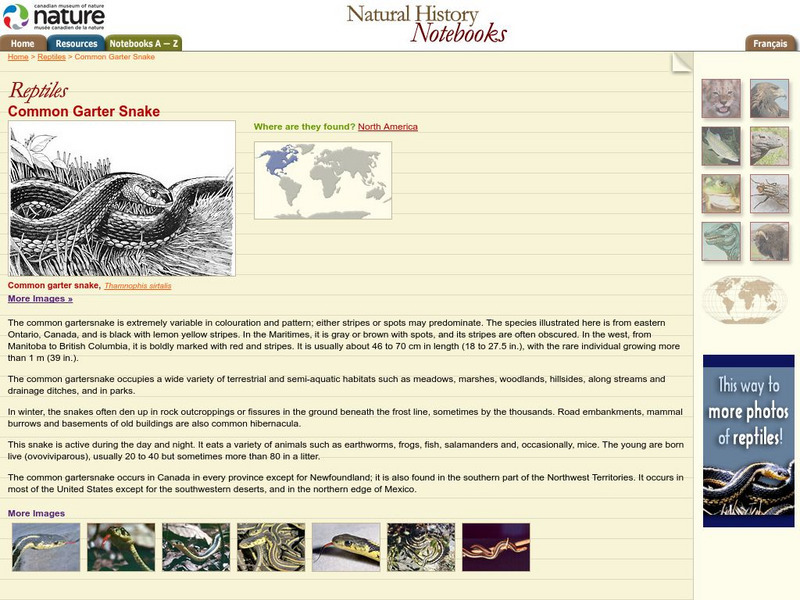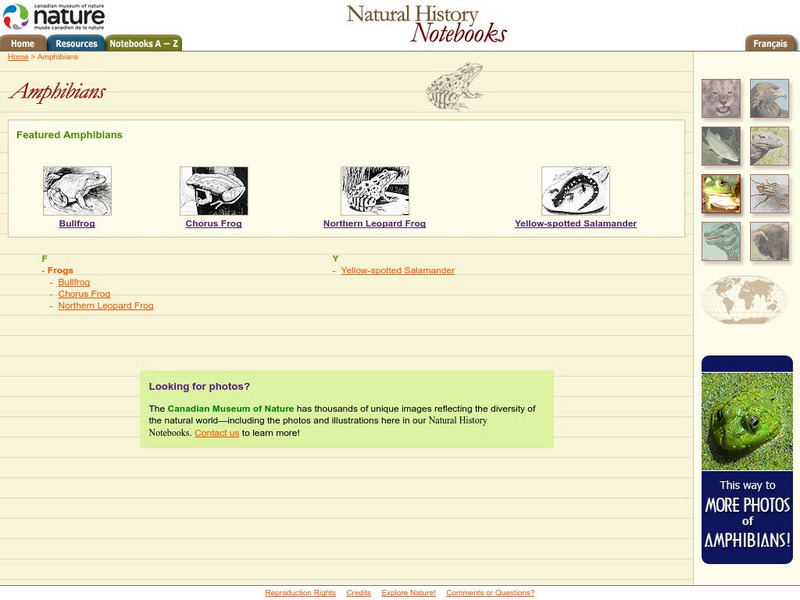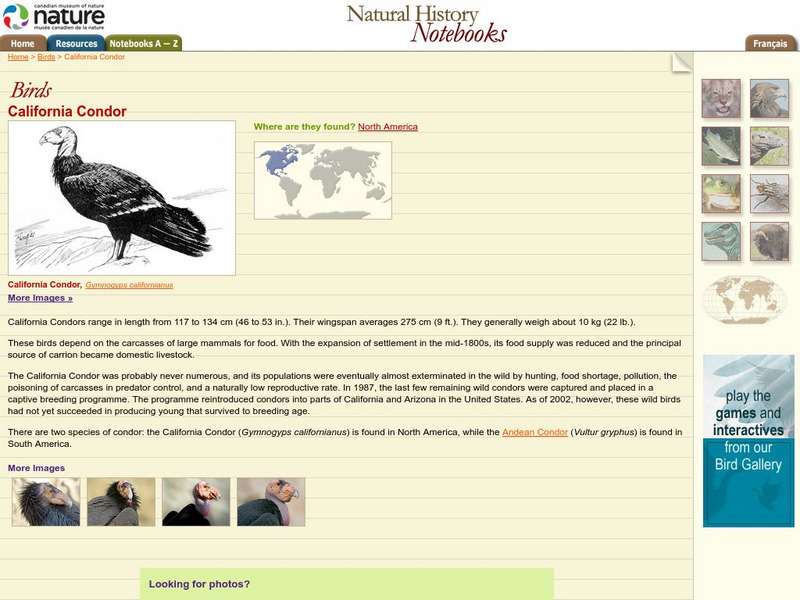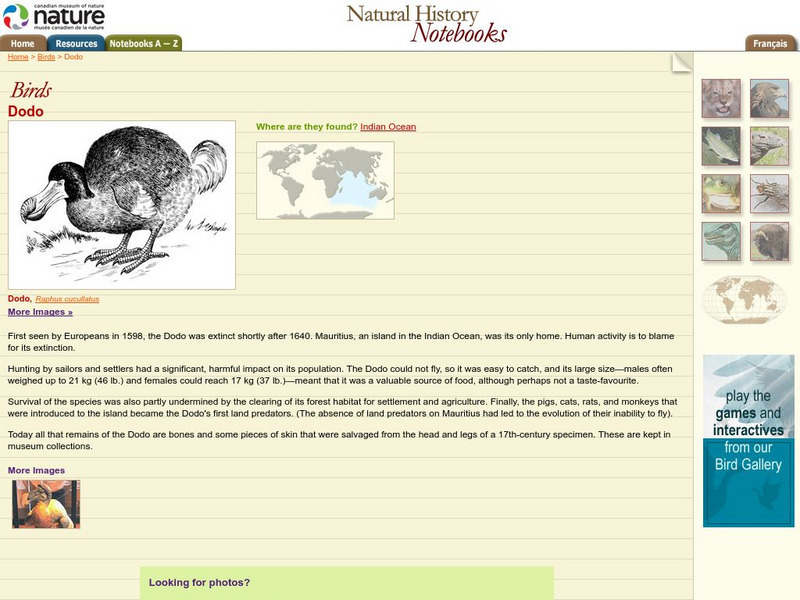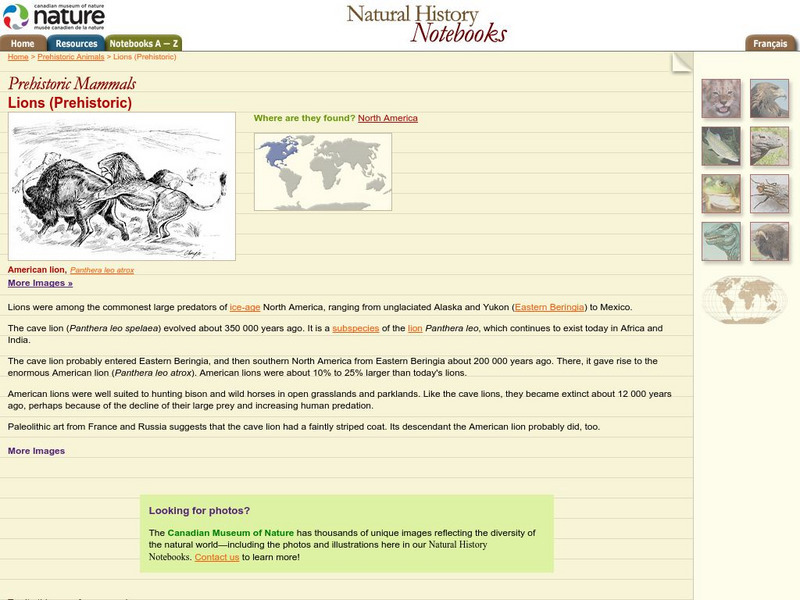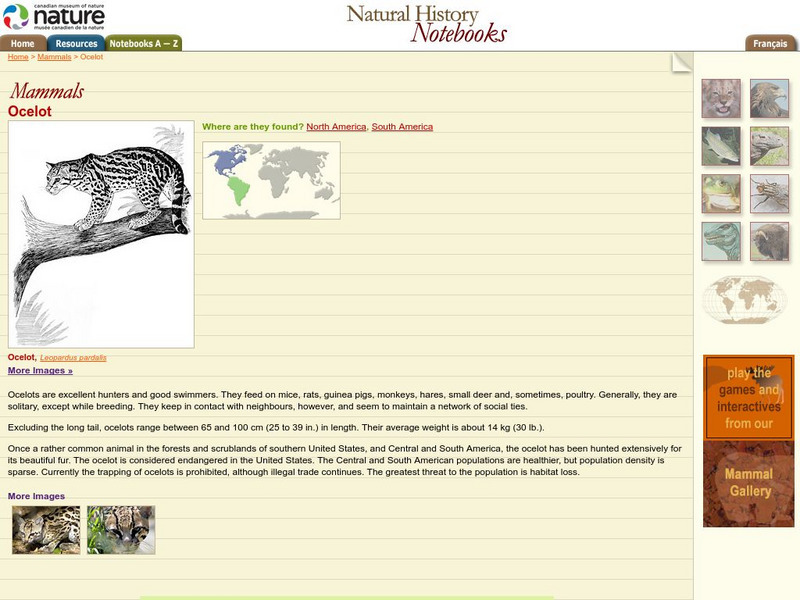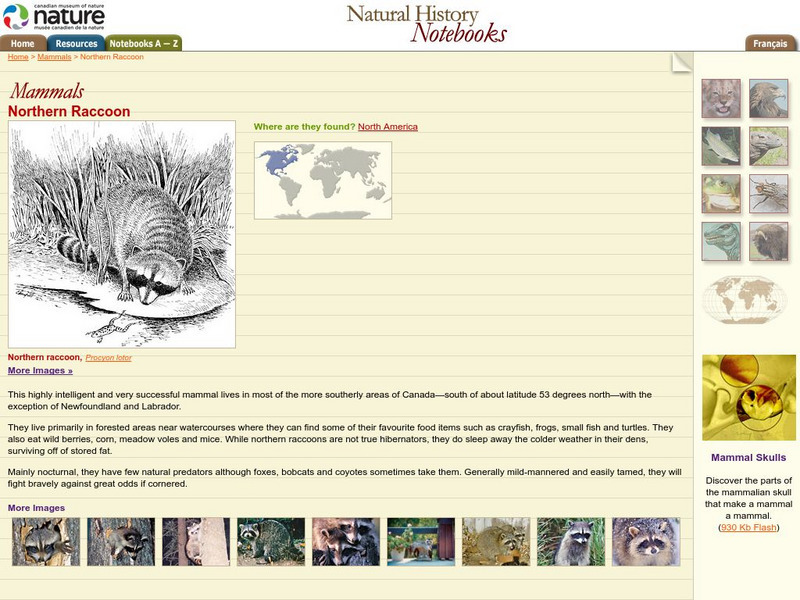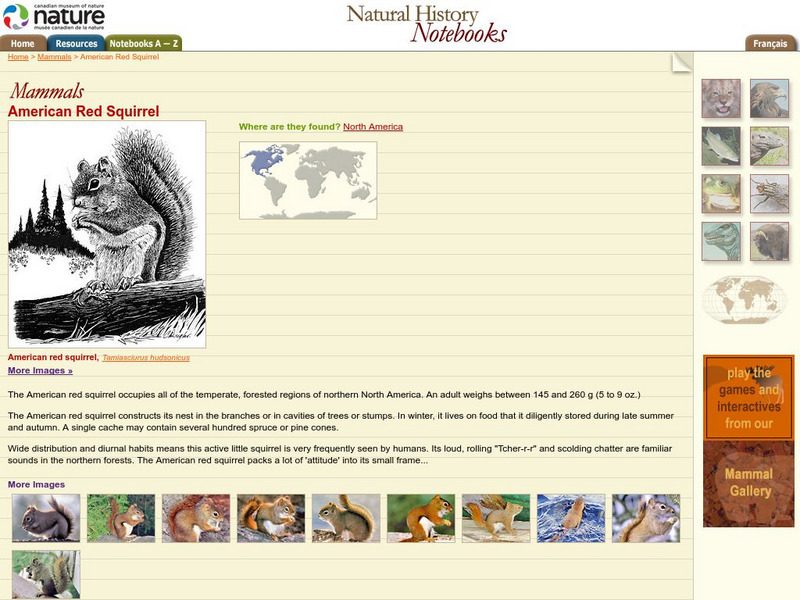Canadian Museum of Nature
Canadian Museum of Nature: Garter Snake
Did you know that the common garter snake can be found in every province in Canada, except Newfoundland? This is just one of the interesting facts presented along with eight close up photographs.
Canadian Museum of Nature
Canadian Museum of Nature: Boa Constrictor
The boa constrictor is not venomous, but kills its pray by constriction. Described at the boa constrictor's characteristics, young, habitat and pray. Included is one close up image.
Canadian Museum of Nature
Canadian Museum of Nature: Indian Gavial
The Indian gavial is one of the rarest crocodile species in Asia. Described at its characteristics, young. Included is one photograph.
Canadian Museum of Nature
Canadian Museum of Nature: Galapagos Land Inguana
Today, very few of the Galapagos land iguanas exist. Described are their characteristics, food, and reproduction. Eight photographs show this iguana close up in its habitat.
Canadian Museum of Nature
Canadian Museum of Nature: Crocodiles
Do you know the difference between a crocodile and an alligator? Find out how they differ, the number of species, what they eat, their characteristics and location. Six pictures show this reptile in its habitat.
Canadian Museum of Nature
Canadian Museum of Nature: American Alligator
Did you know that there are 21 crocodilian species? This is just one of the interesting facts that describe the alligator's features, habitat, and young. Ten close up photographs provide for an exciting look at this amazing reptile.
Canadian Museum of Nature
Canadian Museum of Nature: Dovekie
The Dovekie, also known as a little auk, is a small black and white sea bird that inhabits the Arctic and Northern Atlantic oceans. Briefly described are the locations it may be found in and its characteristics. Included are two close up...
Canadian Museum of Nature
Canadian Museum of Nature: Yellow Bellied Sapsucker
Briefly described are the characteristics and feeding habits of the Yellow-bellied Sapsucker. This is of one of the few species of migratory woodpeckers. Two pictures provide a close up view.
Canadian Museum of Nature
Canadian Museum of Nature: Leeches
Leeches are found all over the world in both fresh and salt water, yet people tend to know little about them. Some facts and photos of these misunderstood creatures are found here.
Canadian Museum of Nature
Canadian Museum of Nature: House Mouse
The house mouse is found virtually all over the world except for the Antarctica. This page has some basic facts and a few photos of this little rodent.
Canadian Museum of Nature
Canadian Museum of Nature: Amphibians
Provides fascinating facts and images of frogs and salamanders plus a map of where they can be found.
Canadian Museum of Nature
Canadian Museum of Nature: California Condor
There are very few California condors left and the ones that are able to reproduce are in captivity as efforts are made to build up their population. The reasons for their decline are explained here and you can see some pictures of them.
Canadian Museum of Nature
Canadian Museum of Nature: Dodo
The Dodo became extinct shortly after 1640 and all that remains of them today are bones and some pieces of skin. Provided is a brief description of their location, characteristics and predators.
Canadian Museum of Nature
Canadian Museum of Nature: Condor
Described are the locations where the Condor may be found and its characteristics. Nine excellent photographs include close up shots of this magnificent bird.
Canadian Museum of Nature
Canadian Museum of Nature: Dinosaurs: Archaeopteryx Lithographica
Is it a feathered dinosaur, or the ancestor of birds? Find out about the Archaeopteryx lithographica whose fossil remains show feathers similar to that of a bird, and whose skeleton resembles that of a dinosaur.
Canadian Museum of Nature
Canadian Museum of Nature: Killer Whale
Get to know the Killer Whale.. colored photos, description, life cycle, map of habitat, food. Only the basic details are given, making this site perfect for younger researchers.
Canadian Museum of Nature
Canadian Museum of Nature: Lions (Prehistoric)
Lions were among the largest predators during the ice age. Get other interesting facts about this ancestor of the American Lion.
Canadian Museum of Nature
Canadian Museum of Nature: Orangutan
Get to know the Orangutan.. colored photos, description, life cycle, map of habitat, food. Only the basic details of this animal are given, making this site perfect for younger researchers.
Canadian Museum of Nature
Canadian Museum of Nature: Ocelot
Get to know the Ocelot.. colored photos, description, life cycle, map of habitat, food. Only the basic details of this animal are given, making this site perfect for younger researchers.
Canadian Museum of Nature
Canadian Museum of Nature: Muskox
Get to know the Muskox.. colored photos, description, life cycle, map of habitat, food. Only the basic details of this large animal are given, making this site perfect for younger researchers.
Canadian Museum of Nature
Canadian Museum of Nature: Ord's Kangaroo Rat
Get to know Ord's Kangaroo Rat.. colored photos, description, life cycle, map of habitat, food. Only the basic details of this little rodent are given, making this site perfect for younger researchers.
Canadian Museum of Nature
Canadian Museum of Nature: Raccoon
Get to know the Raccoon.. colored photos, description, life cycle, map of habitat, food. Only the basic details of this animal are given, making this site perfect for younger researchers.
Canadian Museum of Nature
Canadian Museum of Nature: American Red Squirrel
Get to know the American Red Squirrel.. colored photos, description, life cycle, map of habitat, food. Only the basic details of this little animal are given, making this site perfect for younger researchers.
Canadian Museum of Nature
Canadian Museum of Nature: Sable Antelope
Get to know the Sable Antelope.. colored photos, description, life cycle, map of habitat, food. Only the basic details of this animal are given, making this site perfect for younger researchers.
